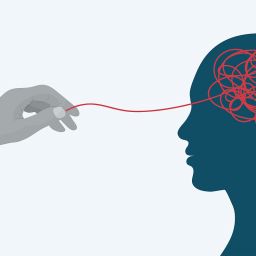
Tips for Managing Stress in School and Life
Teen mental health is an increasingly important topic as teenagers face unique challenges that can impact their well-being. Academic pressures, social expectations, and concerns about the future can feel overwhelming, creating stress that sometimes escalates into anxiety.
The Root Causes of Teen Anxiety
Teen anxiety often stems from multiple sources, which can compound over time if not addressed. Here are some of the primary factors affecting teen mental health:
- Academic Pressure: The need to excel in school, meet high GPA expectations, and succeed in college admissions creates intense pressure.
- Social Media Influence: Comparing oneself to others on social media can harm self-esteem and increase anxiety levels in teens.
- Future Uncertainty: Teens face pressure to plan their futures, a task that can feel daunting and often causes stress about making the “right” choices.
Identifying these sources of anxiety can be the first step to addressing them and supporting teen mental health.
Understanding Social Media’s Effect on Teen Mental Health
Social media addiction is an increasing concern among teenagers, with profound effects on their mental well-being. While platforms like Instagram, TikTok, and Snapchat offer spaces for connection and creativity, they also come with risks to teen mental health. These digital spaces can intensify issues like anxiety, depression, and body image struggles.
Anxiety and Depression: Overuse of social media can elevate anxiety and depression in teens. The pursuit of validation through likes and comments may lead to feelings of inadequacy and isolation when online interactions fall short. Research indicates a link between higher social media use and increased levels of anxiety and depression in adolescents.
Body Image Concerns: Social media’s influence on body image is complex. Though it can promote body positivity, it also reinforces unattainable beauty standards through curated and filtered images. This can foster body dissatisfaction and even contribute to eating disorders as teens compare themselves to idealized portrayals online.
Cyberbullying: Cyberbullying is another significant issue connected to social media dependence. The anonymity of these platforms can embolden people to engage in harmful behaviors, causing distress for victims. Constant exposure to bullying and negative comments can deeply affect a teen’s self-esteem and overall mental health.
Practical Coping Strategies for Teens
When it comes to supporting teen mental health, practical, evidence-based strategies can make a significant difference. Here are several approaches to help teens manage stress and anxiety:
- Time Management and Organization: Breaking down tasks into manageable steps and setting realistic goals can reduce the feeling of overwhelm. Encourage teens to use planners or digital tools to stay organized and prioritize.
- Limiting Social Media Exposure: Since social media can impact self-image, encourage teens to take periodic breaks or limit usage. Practicing mindfulness while online can help reduce comparison and focus more on authentic connections.
- Mindfulness and Relaxation Techniques: Meditation, yoga, and deep breathing exercises are great tools for managing stress and promoting a sense of calm. Practicing these techniques regularly can help teens better handle moments of high anxiety.
- Open Communication with Trusted Adults: Having a safe space to discuss stressors is essential for teen mental health. Encourage teens to talk openly with parents, teachers, or counselors to relieve stress and get advice when needed.
These strategies can empower teens to take control of their mental well-being and develop habits that support long-term health.
How Integrative Psychiatry Supports Teen Mental Health
Traditional psychiatry often relies heavily on medication to treat mental health conditions, which can be beneficial but also come with drawbacks. Integrative psychiatry takes a more holistic approach, addressing the mind, body, spirit, and emotions in unison. This model can offer tremendous support for teen mental health by focusing on both symptom management and root causes of distress.
What Is Integrative Psychiatry?
Integrative psychiatry combines traditional medical approaches with holistic therapies to promote healing on multiple levels. This type of care includes treatments such as:
- Pharmaceutical-Grade Natural Supplementation: Supplements are tailored to support the body’s natural healing abilities, addressing deficiencies that could impact mental well-being.
- Detoxification: Removing toxins from the body can help balance physical health and support emotional clarity.
- Thyroid, Adrenal, and GI Tract Balancing: These systems influence mental health, and balancing them can reduce symptoms like fatigue, stress, and anxiety.
By addressing these various aspects of health, integrative psychiatry promotes a state of “wholeness,” where teens can release limiting beliefs and process past traumas. It’s a powerful approach to support a deeper, more sustained mental wellness journey.
The Role of Micronutrients in Teen Mental Health
Micronutrients, including essential vitamins, minerals, amino acids, and fatty acids, are critical for optimal mental and physical health. Many teens may unknowingly suffer from micronutrient deficiencies, which can exacerbate feelings of anxiety or low mood. Integrative psychiatry incorporates these essential nutrients to help teens improve their mental health.
Can a Healthy Diet Still Be Nutrient Deficient?
Despite maintaining a balanced diet, many people, including teens, may still be nutritionally deficient due to factors like soil depletion and environmental changes. For instance, common deficiencies in iodine, zinc, and folate can significantly impact mood and cognitive function. Integrating supplements to address these deficiencies may help stabilize emotions, promote better focus, and support mental resilience.
When to Consider Psychiatric Medication
Integrative psychiatry values a balanced approach to medication. For some teens, medication may be essential for managing severe symptoms, while for others, minimal pharmaceutical intervention may suffice. An integrative psychiatrist tailors treatment plans to each teen’s unique needs, using the lowest effective dose of medication if required. This ensures that relief from symptoms does not come at the expense of long-term wellness.
Whole-System Healing Model: A Path to Teen Wellness
The whole-system healing model used in integrative psychiatry addresses the physical, mental, emotional, and spiritual aspects of each individual. This approach is especially beneficial for teens, as it helps release emotional and mental baggage stored in the body and energetic fields, promoting self-worth and self-awareness. This holistic model enables teens to connect with their inner strengths and build a more confident, resilient self-image.
By creating a foundation of balanced mental and physical health, teens can more readily manage stress and anxiety and approach life with a positive, empowered mindset.
Conclusion
Teen mental health is a complex yet critical area to address. By understanding the sources of anxiety, implementing effective coping strategies, and exploring the benefits of integrative psychiatry, teens can build a foundation of mental resilience and well-being. Integrative psychiatry offers a holistic approach, allowing teens to achieve “wholeness” and live in a way that honors their true selves.
For those looking to support teen mental health, it’s essential to encourage open communication, promote self-care practices, and remain open to alternative approaches like integrative psychiatry. Teens deserve comprehensive support that fosters mental health and helps them thrive.
Discover a Path to Balanced Wellness with the Center for Integrated Health
If you’re seeking support for teen mental health, consider exploring integrative psychiatry with the Center for Integrated Health. Our holistic approach combines traditional and natural therapies to support your teen in achieving emotional, physical, and mental harmony. Book a consultation to learn more about how integrative psychiatry can provide lasting, meaningful change for your teen’s mental health. Contact us today to start the journey to a brighter, balanced future.
















